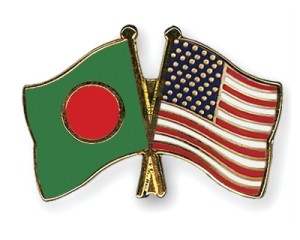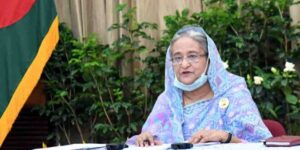The United States has said the permanent five (P5) members of the UN Security Council (UNSC) have a special obligation to contribute to ending violence in Myanmar and aiding the victims of violence.
The five permanent members of the UNSC are China, France, Russian Federation, the United Kingdom, and the United States.
The United States recognises the significant contributions of other regional partners and encourages continued responsiveness to the needs of Rohingya refugees.
“Together, we strive to develop a multifaceted approach to resolve this humanitarian crisis in line with international humanitarian principles,” said US Secretary of State Michael R. Pompeo on Thursday.
The United States has announced nearly $200 million in additional humanitarian assistance provided in Fiscal Year 2020 for Rohingya refugees, host communities in Bangladesh and other countries in the region, and internally displaced Rohingya and other crisis-affected communities in Myanmar, including those who fled ethnic cleansing in Rakhine State.
The United States remains the most generous financial donor to the Rohingya crisis response and acknowledges the efforts of Bangladesh to host these refugees.
“Our total humanitarian assistance since the beginning of Fiscal Year 2020 totals more than $437 million, including nearly $46 million to support the response to the Covid-19 pandemic,” said the US Secretary of State.
Of that total, nearly $349 million is for programmes inside Bangladesh, including nearly $34 million to support response to Covid-19, and nearly $85 million is for the response inside Myanmar, including nearly $11 million to support Covid-19 response, he said.
“With this new funding, our total humanitarian assistance for this crisis response is nearly $1.2 billion in the region since the outbreak of violence in August 2017,” said the US Secretary of State.
The United States, the United Kingdom, the European Union, and the UN Refugee Agency (UNHCR) conducted a virtual conference on Sustaining International Support for the Rohingya Refugee Response.
Humanitarian organisation partners are enhancing response coordination at the national and local level across all sectors, including food; shelter; communication, including emergency telecommunications; disaster preparedness and risk reduction; education and livelihood opportunities; health; logistics; protection, including addressing gender-based violence and child protection; site management and development; and water, sanitation, and hygiene.
The US said they will continue to ensure that their assistance focuses on programmes that they know work, like the lifesaving efforts of the UNHCR, the International Organization for Migration (IOM), the UN Children’s Fund (UNICEF), the World Food Program (WFP), the UN Office for the Coordination of Humanitarian Affairs (OCHA), the International Red Cross and Red Crescent Movement, and numerous non-governmental organizations that have proven track records of success.
The United States said it stands with the UK, the EU, and UNHCR in expressing appreciation for the many donors that announced contributions today.
“We continue to call on others to contribute to the Rohingya crisis response – both long standing partners and new and aspiring donors,” said the US Secretary of State.
The UN has appealed for more than $1 billion in aid to meet the humanitarian needs of Rohingya refugees in Bangladesh this year.
The United States is working with its partners to stop the cycle of violence in Rakhine State, including by cooperating to end the trafficking of weapons and narcotics that have contributed to instability for so long, according to the US Department of State.
“As a part of the United States’ global leadership in humanitarian diplomacy, we continue to call on Burma [Myanmar] to provide unhindered and sustained humanitarian access to anyone requiring assistance,” said Pompeo.
The United States will continue to advocate for a sustainable solution that creates the conditions for the voluntary, safe, dignified, and sustainable return of Rohingya refugees and other displaced persons to their places of origin or to a place of their choosing, he said.
“More broadly, we continue to partner with the people of Burma, including members of other ethnic and religious minority groups, in their efforts to work toward peace and prosperity,” Pompeo added. – UNB




